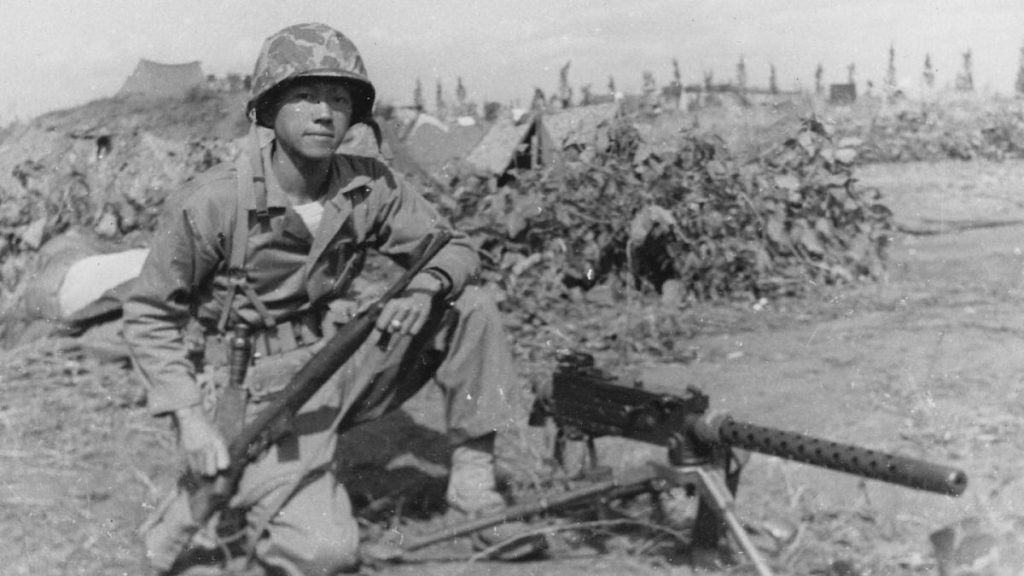During the Battle of Chosin Reservoir in December 1950, Kurt Chew-Een Lee, a first lieutenant in the Marine Corps and possibly the first Asian-American officer in history, led a daring rescue mission to save thousands of American troops threatened by an overwhelming Chinese force. Despite harsh blizzard conditions and his own injuries, Lee and his unit traversed difficult terrain to engage the enemy and secure a crucial evacuation route. Around 8,000 men were saved from certain death or imprisonment, an act that demonstrated Lee’s determination and leadership on the battlefield.
Born in San Francisco in 1926, Lee enlisted in the Marines at the end of World War II and later commissioned as an officer in 1946. Embracing the Corps’s reputation for being first into battle, Lee saw the Korean War as an opportunity to dispel the stereotype of the Chinese as meek and obsequious. As he led a machine gun platoon into North Korean territory, Lee faced skepticism and racial epithets from some fellow Marines, but his dedication to defending his country against the common enemy was unwavering.
During a solo reconnaissance mission in November 1950, Lee utilized his knowledge of Mandarin to confuse and push back Chinese soldiers attacking his unit. Awarded the Navy Cross for his heroism, Lee’s actions inspired his men to carry out a successful counterattack against overwhelming odds. Despite sustaining serious wounds, Lee’s decisive actions in disrupting enemy movements saved countless lives and were critical in maintaining U.N. forces’ evacuation route in North Korea.
In the midst of the brutal Battle of Chosin Reservoir, where thousands of American troops faced a massive Chinese offensive, Lee defied orders to return to the front while still recovering from his injuries. Guiding 500 Marines through treacherous terrain, Lee reinforced the besieged Americans, repeatedly engaging and repelling the enemy forces, which allowed for an orderly retreat to safety. Although most of his rifle company suffered casualties, Lee’s fearless leadership and determination ensured the survival and rescue of many American servicemen in a dire situation.
Following his service in Korea, Lee continued to exemplify bravery and dedication as an intelligence officer in Vietnam before retiring from the Marines in 1968. Along with the Navy Cross, Lee received a Silver Star and two Purple Hearts for his heroic actions in combat. Remembered fondly by his fellow Marines, who hailed his leadership and courage in the face of overwhelming odds, Lee’s legacy continues to inspire admiration and gratitude for his selfless service to his country during some of the most challenging conflicts in modern history.


